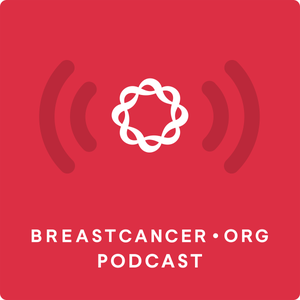
Breastcancer.org Podcast
Caroline Durham
Breastcancer.org podcasts cover all aspects of breast cancer, from diagnosis to treatment to survivorship.
- 11 minutes 49 secondsAdvocates’ Thoughts on SABCS 2024
Five patient advocates share what they like and what they’re excited about at the 2024 San Antonio Breast Cancer Symposium. The advocates are:
- Antoinette Greer, of My Sister My Friend Breast Cancer Support
- Gitte Joergensen, of the Lobular Breast Cancer Alliance
- Joan Mancuso, of Theresa’s Research Foundation
- Barbara Bigelow, of Metavivor and the MBC Alliance
- Christine Hodgdon, of GRASP
Listen to the episode to hear the advocates:
- explain the research they’re most interested in, including circulating tumor DNA research
- what they like most about the San Antonio Breast Cancer Symposium
- what the symposium has inspired them to do
Scroll down to below the “About the guest” information to read a transcript of this podcast.
13 December 2024, 8:38 pm - 8 minutes 13 secondsTop Research at SABCS 2024
The 2024 San Antonio Breast Cancer Symposium featured five days of research presentations, educational sessions, and advocacy meetings.
Dr. Marisa Weiss, founder and chief medical officer of Breastcancer.org, breaks down the research that will have the most immediate impact for people diagnosed with breast cancer.
Listen to the episode to hear Dr. Weiss discuss:
- results from the PATINA study showing that adding Ibrance (chemical name: palbociclib) to first treatments for metastatic, hormone receptor-positive, HER2-positive breast cancer improved outcomes
- research on the benefits of risk-reducing surgery for young women with a BRCA mutation and a history of breast cancer
- the importance of moving away from a “one-size-fits-all” approach to treating breast cancer and personalizing treatments for each unique person
Scroll down to below the “About the guest” information to read a transcript of this podcast.
13 December 2024, 4:49 pm - 7 minutes 16 secondsEnhertu for HER2-Low and -Ultralow Metastatic Breast Cancer
At the 2024 San Antonio Breast Cancer Symposium, Dr. Aditya Bardia, director of the Breast Oncology Program and Translational Research Integration at the UCLA Health Jonsson Comprehensive Cancer Center, presented results from the DESTINY-Breast06 study, showing that Enhertu (chemical name: fam-trastuzumab deruxtecan-nxki), also called T-DXd, was better than chemotherapy for metastatic, hormone receptor-positive, HER2-low or -ultralow breast cancer that grew after one or more hormonal therapy medicines.
Listen to the episode to hear Dr. Bardia explain:
- results of the study
- what HER2-low and -ultralow breast cancer is
- whether people diagnosed with metastatic hormone receptor-positive, HER2-negative breast cancer should have additional HER2 testing
12 December 2024, 8:35 pm - 14 minutes 57 secondsBreast Cancer in Young Women: What We Know and Reducing Risk
Cases of breast cancer in young women have been increasing dramatically in the last eight years. Dr. Matteo Lambertini, whose research focuses on breast cancer in young, especially fertility and pregnancy after a breast cancer diagnosis, chaired a session on breast cancer in the young at the 2024 San Antonio Breast Cancer Symposium. He also presented the results of a study that found young women with a BRCA mutation and a history of breast cancer had better survival and a lower risk of recurrence – the cancer coming back – if they had risk-reducing surgery to remove their healthy ovaries and fallopian tubes, as well as the remaining healthy breast, and any breast tissue left if they had had lumpectomy.
Listen to the episode to hear Dr. Lambertini explain:
- possible reasons why breast cancer rates are rising in young women, even though researchers aren’t exactly sure yet
- some of the most troublesome issues young women with breast cancer face
- how he plans to use the results of his study with his patients
12 December 2024, 1:01 am - 13 minutes 16 secondsAlamo Breast Cancer Foundation Scholarships
Andrea Hans was diagnosed with stage II triple-negative breast cancer when she was 28. With expertise in public health and health policy, she began working as an advocate to empower young women to understand their breast cancer risk factors. Andrea received an Alamo Breast Cancer Foundation Advocate Scholarship to attend the 2024 San Antonio Breast Cancer Symposium.
Listen to the episode to hear Andrea explain:
- how she transitioned from patient to advocate
- the scholarship application process
- what being a scholar entails
11 December 2024, 5:45 pm - 8 minutes 29 secondsSexual Health After Breast Cancer
At the 2024 San Antonio Breast Cancer Symposium Dr. Don Dizon, professor of medicine and professor of surgery at the Brown University Cancer Institute, was part of a panel entitled “Sex, Drugs, and Rock and Roll.” His presentation focused on sexual health after breast cancer.
Listen to the episode to hear Dr. Dizon discuss:
- the highlights of his presentation
- why sexual health after cancer treatment is important
- his advice on how to discuss sexual health with a provider, especially for people in the LGBTQ+ community
10 December 2024, 10:28 pm - 40 minutes 8 secondsCan Hormonal Therapy Help Treat Triple-Negative Breast Cancer?
New research suggests that estrogen plays a role in allowing hormone receptor-negative breast cancer to grow. This is because estrogen limits the ability of the immune system to attack cancer cells; it also makes immunotherapy medicines, like Keytruda (chemical name: pembrolizumab), less effective. Dr. Donald McDonnell, senior author of the study, explains the results and how they might make a difference for people with breast cancer.
Listen to the episode to hear Dr. McDonnell explain:
- what eosinophils are and how he started studying them in connection with breast cancer
- how estrogen in the body affects the immune system
- how a hormonal therapy medicine, like tamoxifen, can make an immunotherapy medicine, like Keytruda, more effective
6 December 2024, 2:59 pm - 43 minutes 16 secondsBlack Women and Hormonal Therapy Sexual Side Effects
In the THRIVE trial, sexual side effects caused by hormonal therapy led to lower mental quality of life in both Black and white women, but caused lower physical quality of life only in Black women. Sexual side effects were also linked to Black women being less likely to take hormonal therapy as prescribed, but not white women.
Dr. Janeane Anderson, who analyzed the THRIVE data, explains why it’s so important for anyone who’s received breast cancer treatment to talk to their doctors about any and all sexual health problems they’re having.
Listen to the episode to hear Dr. Anderson discuss:
- Why sexual health is one of the most significant unmet needs among breast cancer survivors of breast cancer, regardless of race.
- The most common sexual health side effects of hormonal therapy.
- Her advice to women who aren’t comfortable talking about sex and sexuality with their oncologists.
22 November 2024, 1:00 pm - 29 minutes 57 secondsDiagnosed With Breast Cancer at 26
Being diagnosed with breast cancer at any age is frightening and unexpected. But if you’re diagnosed in your 20s – before any type of screening starts – you face different challenges than if you’re diagnosed later in life.
LaShae Rolle, who studies cancer disparities, was diagnosed with breast cancer in 2023 at age 26. When she found a lump in her breast she wasn’t concerned because no one in her family had ever had breast cancer. But a mammogram and ultrasound found at least eight cancer tumors in different quadrants of her breast.
Listen to the episode to hear LaShae explain:
- why she decided to have a check-up after she found the lump
- how powerlifting helped ease some side effects
- how her diagnosis changed the focus of her research
- her advice to other people who are too young to start cancer screening
8 November 2024, 5:45 pm - 19 minutes 59 secondsWhat You Need to Know About Inflammatory Breast Cancer
Inflammatory breast cancer is a rare and aggressive type of breast cancer; only about 1% to 5% of all breast cancers diagnosed in the United States are inflammatory. This type of breast cancer tends to be diagnosed in younger women and has very different symptoms than other types of breast cancer; it can be mistaken for an infection.
Dr. Filipa Lynce, director of the Inflammatory Breast Cancer Center at Dana-Farber, explains what you need to know about inflammatory breast cancer.
Listen to the episode to hear Dr. Lynce explain:
- the signs and symptoms of inflammatory breast cancer
- how inflammatory breast cancer is diagnosed
- how inflammatory breast cancer is treated
25 October 2024, 12:00 pm - 55 minutes 49 secondsTransitioning to a Different Normal After a Breast Cancer Diagnosis
A breast cancer diagnosis is a trauma, both physically and emotionally. You may find yourself wondering why no one is calling you one day and wishing you could just be left alone the next. This podcast is the audio from a special Virtual Community Meetup featuring guest moderator Kelly Grosklags.
Listen to the podcast to hear Kelly and Community members discuss:
- navigating through both fear and hope
- how to stay grounded in what exists today
- giving yourself grace for living a different life
11 October 2024, 3:23 pm - More Episodes? Get the App
Your feedback is valuable to us. Should you encounter any bugs, glitches, lack of functionality or other problems, please email us on [email protected] or join Moon.FM Telegram Group where you can talk directly to the dev team who are happy to answer any queries.
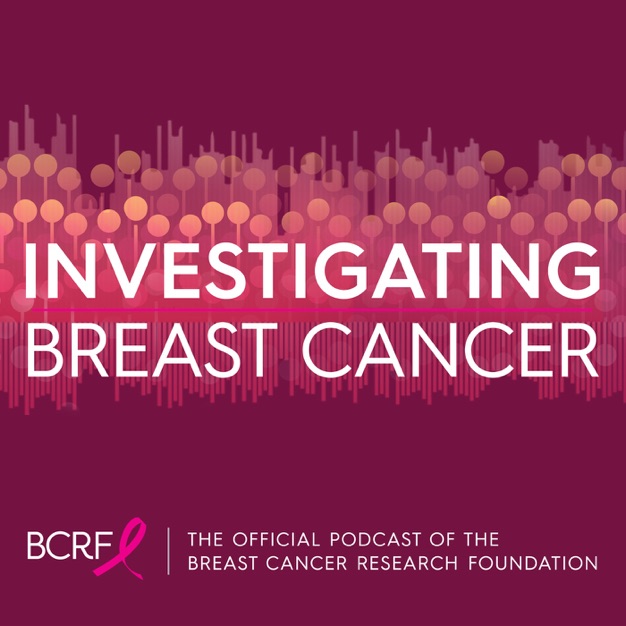 Investigating Breast Cancer
Investigating Breast Cancer
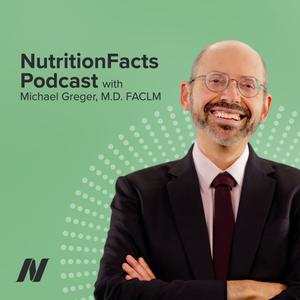 Nutrition Facts with Dr. Greger
Nutrition Facts with Dr. Greger
 Everyday Wellness with Cynthia Thurlow ™
Everyday Wellness with Cynthia Thurlow ™
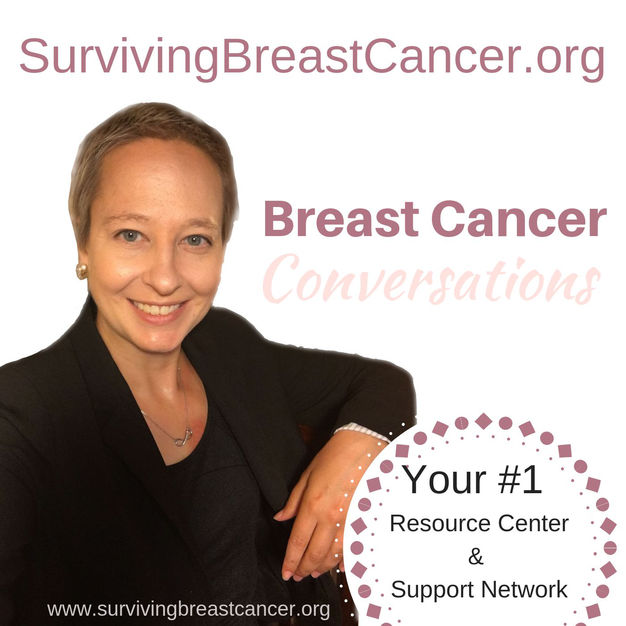 Breast Cancer Conversations
Breast Cancer Conversations
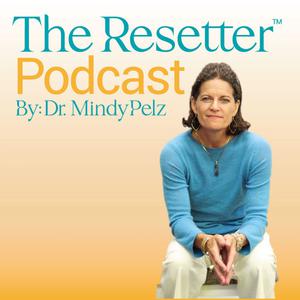 The Resetter Podcast with Dr. Mindy Pelz
The Resetter Podcast with Dr. Mindy Pelz
 Nutrition Diva
Nutrition Diva